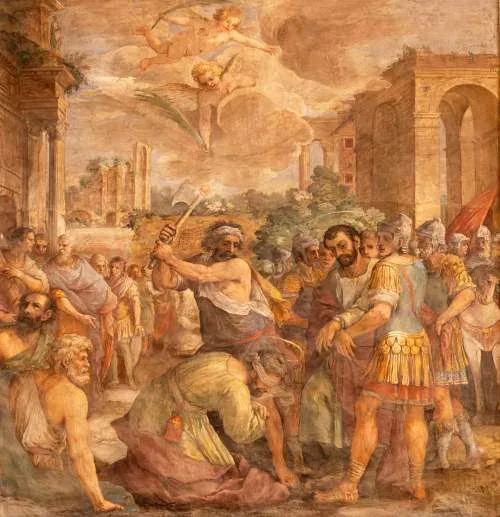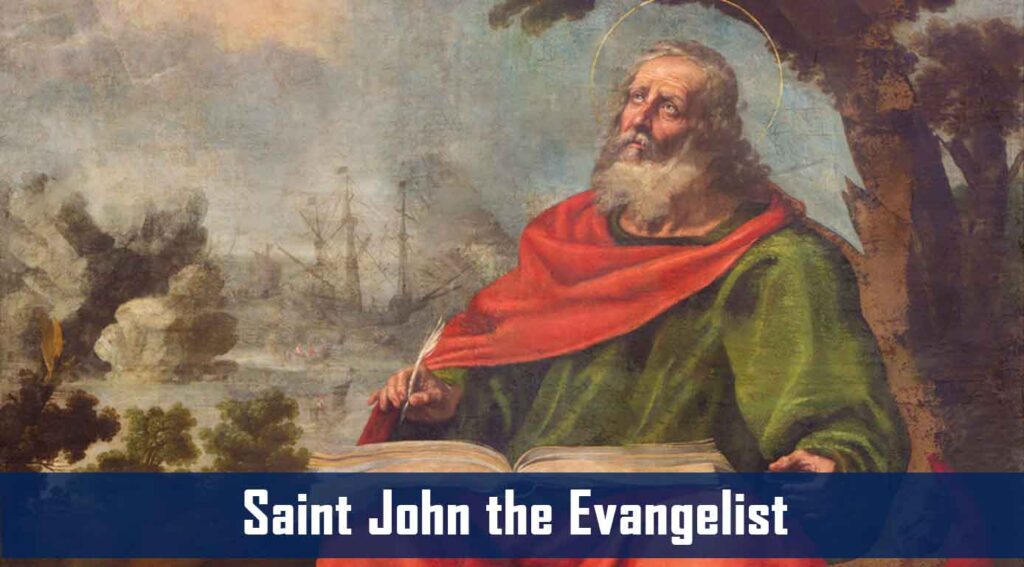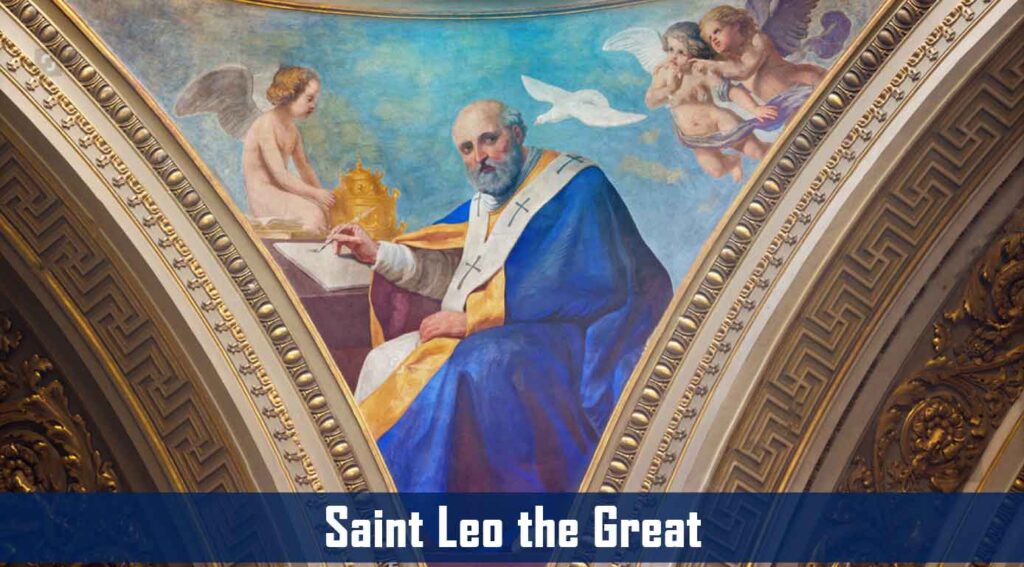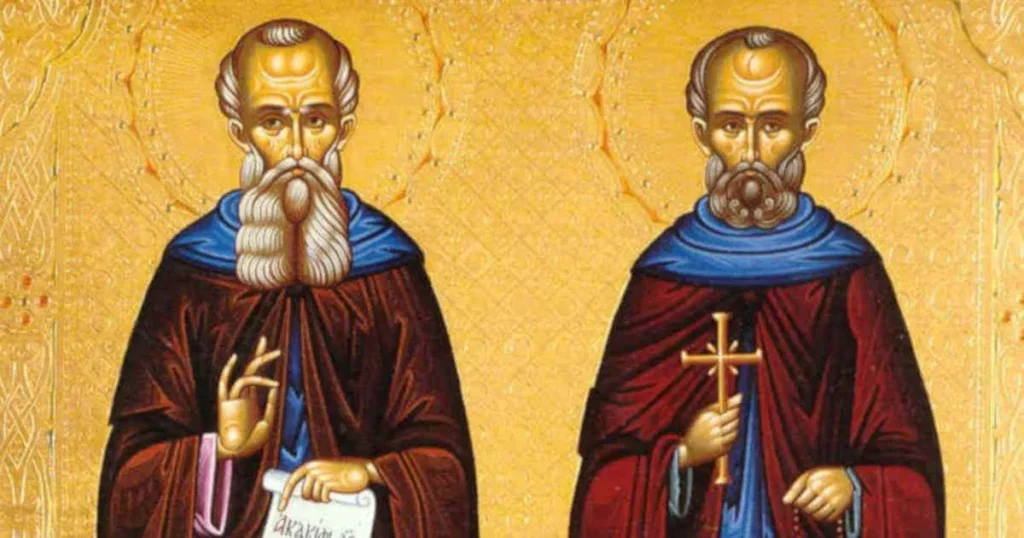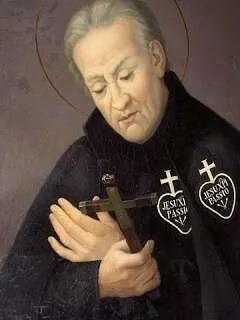c. Late Third Century–c. 287 or 303; Patron Saints of apothecaries, barbers, blind people, chemical industry, druggists, midwives, physicians, pharmacists, surgeons Invoked against blindness, kidney stones, hernias, and pestilence; Pre-Congregation canonizations
Today, the Church honors Saints Cosmas and Damian—twin brothers, physicians, and martyrs who have been widely venerated in the East and West since the time of their deaths. Little is known for certain about these saints. What we do know is that they were martyrs, most likely under Roman Emperor Diocletian. What has come down to us by way of legend, however, offers an inspiring witness of faith and courage from the early Church.
Cosmas and Damian might have been born in Cyrrhus, modern-day Syria, and later moved to the Gulf of Iskenderun in Cilicia, modern-day Turkey, in the mid- to late-third century. They were twins, sons of a Christian mother and possibly a Christian father, who raised them in the faith. They were educated in the science of healing and became physicians.
At that time, physicians were often paid based on their reputations. Those who were highly skilled and successful often catered to the wealthy, receiving regular salaries from them. Others charged for services on a case-by-case basis. Because Cosmas and Damian were Christians, legend holds that they decided to evangelize the largely pagan community in which they lived by doing something extraordinary. They offered their healing services for free! This charitable work earned them the title “Anargyroi,” meaning “without silver.” Their counter-cultural practice caught the attention of their fellow citizens and drew many to the faith. Legends hold that they were excellent physicians who healed many, perhaps more through their prayers than by their science. One legend states that they were the first to transplant a leg to an amputee, which is often depicted in art.
In 284, Diocletian became the Roman emperor and embarked on many reforms within the empire. In 303, he began to issue a series of edicts that led to an empire-wide persecution and death of many Christians. Prior to that, persecutions were more localized and random. Around the year 287 or 303 (records are conflicting), the Roman Prefect Lysias of Cilicia arrested the twins Cosmas and Damian. Christians of prominence were often the first to be targeted.
As was the custom, the brothers were given the opportunity to publicly renounce their faith and honor the Roman gods to save their lives. They refused and were sentenced to death. Various legends surrounding their deaths state that they were first tortured in an attempt to get them to comply with the prefect’s wishes. However, they were miraculously preserved from suffering, sustaining no injuries. Multiple attempts were then made to kill them by drowning, fire, arrows, and stoning, but each attempt failed. Finally, Cosmas and Damian, along with three of their brothers, were beheaded.
It is believed that Cosmas and Damian were buried in the city of Cyrrhus, their possible birthplace. From that time on, they have been widely venerated. Many miraculous healings have been attributed to their intercession. Within a century of their martyrdom, churches were built in their honor in Jerusalem, Egypt, and Mesopotamia.
In the sixth century, Roman Emperor Justinian I honored these saints by restoring the city of their burial. Shortly after, the emperor received a miraculous cure through their intercession. In gratitude, he brought their relics to Constantinople where he built a Church in their honor that became a popular pilgrimage site. In that church, a custom began where the faithful would remain all night at their tomb in prayer, seeking miraculous cures to their ailments. Many miracles have been reported over the centuries.
Also in the sixth century, Pope Symmachus inserted the names of Cosmas and Damian into the Roman Canon (Eucharistic Prayer I) and Pope Felix IV repurposed a fourth-century pagan temple in Rome, within the Forum of Peace, renaming it the Basilica Santi Cosma e Damiano. Though it has gone through many renovations, the fifth-century mosaics depicting their story are among the most revered pieces of sacred art in Rome.
Though we will never know the exact historical details of the lives and martyrdoms of Saints Cosmas and Damian until we reach the glories of Heaven, the virtues they enshrine should be a source of inspiration and encouragement. Their work of evangelization through free and selfless service in the name of Christ is worthy of imitation. Their heroic martyrdom presents us with the virtues of courage and fidelity to Christ. Their miraculous intercession for those who have been ill should invite us to rely upon their intercession for the sick today.
Source: https://mycatholic.life/saints/saints-of-the-liturgical-year/september-27sts-cosmas-and-damian-martyrs/


